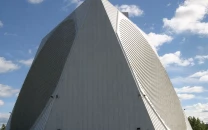Commitment to conservation
Nature Conservation Act 2024 targets Margallah Hills' protection with revenue generation and strict penalties.

The Islamabad Nature Conservation and Wildlife Management Act 2024, having come into force recently, represents a significant milestone in the preservation of Islamabad's natural heritage with the aim to safeguard the Margallah Hills National Park - a crucial ecosystem increasingly threatened by urban expansion and commercial activities. A key element of this new law is the introduction of internal revenue generation to support the park's sustainable management.
For years, conservation efforts in Pakistan have struggled due to limited funding, resulting in piecemeal approaches that fail to address the long-term needs of ecosystems. With the ability to generate and reinvest revenue directly into the park, the concerned authorities can now develop comprehensive strategies to protect and preserve this vital area. However, this often comes with trade-offs such as commercialisation of conservation areas. If not carefully managed, this could lead to the very problems the Act seeks to address - over-tourism and habitat disruption. The Act also introduces realistic fines and penalties for violations within the park. Previously, weak enforcement allowed illegal logging, irresponsible tourism and other harmful activities to go unchecked. The new penalties are designed to create accountability and deter activities that threaten the park's ecological balance, and one hopes its implementation mechanism will be robust.
For environmentalists, it is a positive indication that this comes at the heels of the Supreme Court's decision to close eateries in and around the park. However, the overall success will depend on rigorous enforcement and a broader commitment to addressing the underlying environmental challenges facing not just the Margallah Hills but other ecologically sensitive areas. Without these, such acts risk becoming yet another well-intentioned but ultimately ineffective piece of legislation.














COMMENTS
Comments are moderated and generally will be posted if they are on-topic and not abusive.
For more information, please see our Comments FAQ